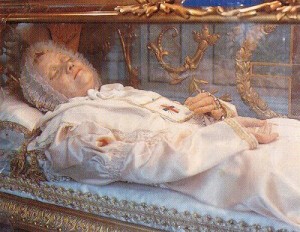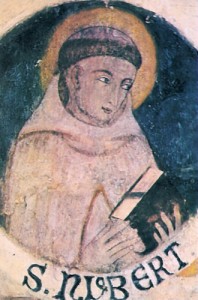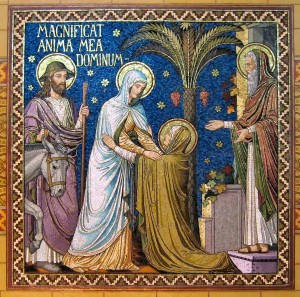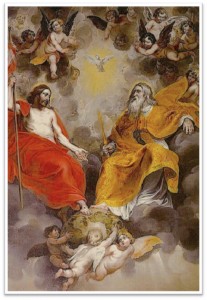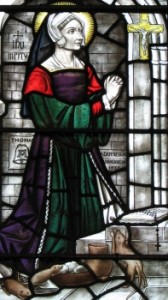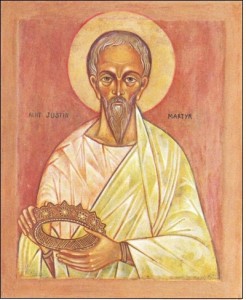 Among the many saints honored today, Justin the martyr is one that needs to be invoked due to his reasonableness in the approach he took regarding the faith on all levels. He met his destiny in being beheaded in AD 165 at Rome. This second century saint and philosopher is know for his defense of the faith by using the gift of reason. Today we could use a good dose of Justin in making the reasons for being Christian known and understandable. One of the famous interchanges he had went like this: “Rusticus said: ‘What system of teaching do you profess?’ Justin said: ‘I have tried to learn about every system, but I have accepted the true doctrines of the Christians, though these are not approved by those who are held fast by error.'”
Among the many saints honored today, Justin the martyr is one that needs to be invoked due to his reasonableness in the approach he took regarding the faith on all levels. He met his destiny in being beheaded in AD 165 at Rome. This second century saint and philosopher is know for his defense of the faith by using the gift of reason. Today we could use a good dose of Justin in making the reasons for being Christian known and understandable. One of the famous interchanges he had went like this: “Rusticus said: ‘What system of teaching do you profess?’ Justin said: ‘I have tried to learn about every system, but I have accepted the true doctrines of the Christians, though these are not approved by those who are held fast by error.'”
In Justin’s First Apology sacramental and liturgical theologians look to Justin because of the rigor he had for being consistent with divine revelation; in the work just named Justin takes on the followers of Mithras for the mimicking of the Eucharist and confusing the faithful and distracting the proper defense of the faith. Justin’s eucharistic faith is something for us today to understand. Justin’s use of language is stunning:
But we, after we have thus washed him who has been convinced and has assented to our teaching, bring him to the place where those who are called brethren are assembled, in order that we may offer hearty prayers in common for ourselves and for the baptized [illuminated] person, and for all others in every place, that we may be counted worthy, now that we have learned the truth, by our works also to be found good citizens and keepers of the commandments, so that we may be saved with an everlasting salvation.
Having ended the prayers, we salute one another with a kiss. There is then brought to the president of the brethren bread and a cup of wine mixed with water; and he taking them, gives praise and glory to the Father of the universe, through the name of the Son and of the Holy Ghost, and offers thanks at considerable length for our being counted worthy to receive these things at His hands.
And when he has concluded the prayers and thanksgivings, all the people present express their assent by saying Amen. This word Amen answers in the Hebrew language to ge’noito [so be it].
And when the president has given thanks, and all the people have expressed their assent, those who are called by us deacons give to each of those present to partake of the bread and wine mixed with water over which the thanksgiving was pronounced, and to those who are absent they carry away a portion (ch. 65).
and
“And this food is called among us Eucharistia [the Eucharist], of which no one is allowed to partake but the man who believes that the things which we teach are true, and who has been washed with the washing that is for the remission of sins, and unto regeneration, and who is so living as Christ has enjoined.
For not as common bread and common drink do we receive these; but in like manner as Jesus Christ our Saviour, having been made flesh by the Word of God, had both flesh and blood for our salvation, so likewise have we been taught that the food which is blessed by the prayer of His word, and from which our blood and flesh by transmutation are nourished, is the flesh and blood of that Jesus who was made flesh.” – (First Apology, 66)
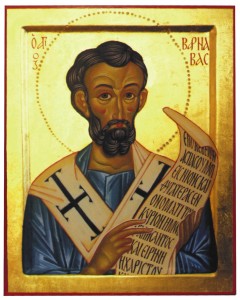 When he converted to Christ from being a Cypriot Jew, Joseph changed his name to Barnabas, a name that means “son of encouragement.” Barnabas seems to be the cousin of John Mark, the author of the Gospel of Mark.
When he converted to Christ from being a Cypriot Jew, Joseph changed his name to Barnabas, a name that means “son of encouragement.” Barnabas seems to be the cousin of John Mark, the author of the Gospel of Mark.